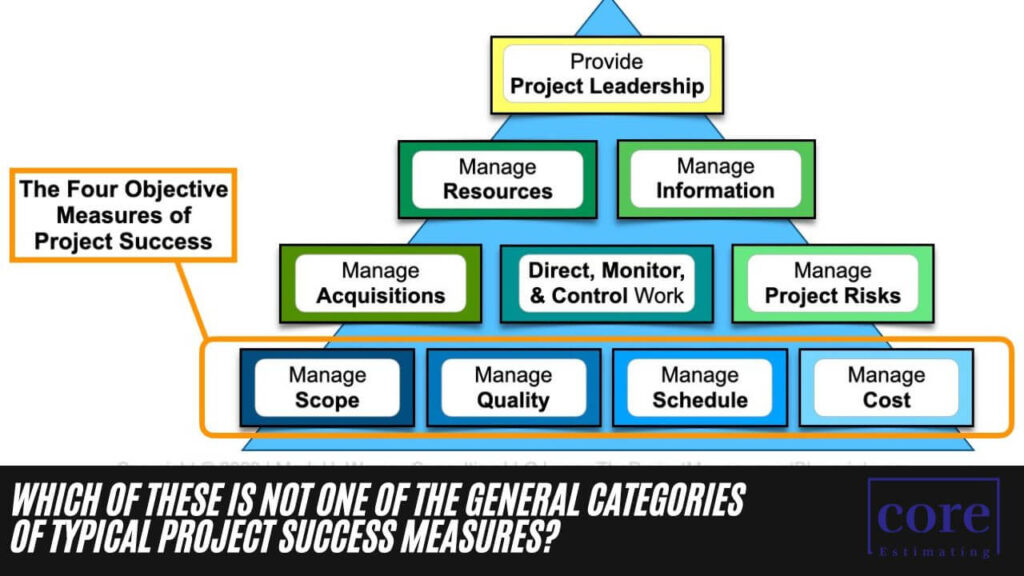In the realm of project management, the concept of project success is a fundamental and telling metric. It serves as a litmus test for a project’s overall effectiveness and efficiency. To gauge project success, a range of measures is employed. However, it’s important to note that not all of these measures belong to the same category. In this article, we’ll explore the general categories of typical project success measures and, more importantly, identify the one that stands out from the rest.
Understanding Project Success Measures
Before we embark on the quest to pinpoint the outlier among project success measures, let’s first establish a solid understanding of what these measures are all about. Project success measures are essentially the metrics or criteria used to assess the outcome of a project. These criteria may vary depending on the project’s nature, its objectives, and the stakeholders involved.
If you’re in need of construction estimate services, simply go to homepage or follow the links below:
| Services | Links |
|---|---|
| Detailing Services | Link |
| Building Information Modeling | Link |
| General Contractor | Link |
| Subcontractors | Link |
| MEP | Link |
General Categories of Project Success Measures
In order to make sense of these project success measures, it’s common practice to categorize them into several distinct groups. These categories serve to provide project managers and stakeholders with a structured framework for evaluating a project’s performance. The broad categories typically include:
1. The Triple Constraint Model
- This model, sometimes referred to as the Iron Triangle, centers on three crucial elements: time, cost, and scope. Success is determined by the effectiveness with which these three factors are managed.
2. Stakeholder Satisfaction
- This category revolves around assessing the satisfaction levels of various stakeholders involved in the project. This encompasses clients, team members, and the end-users.
3. Quality of Deliverables
- Quality is a paramount measure of a project’s success. It seeks to evaluate whether the project meets the defined quality standards and requirements.
4. Adherence to Schedule
- Meeting project deadlines is a cornerstone of success. Adherence to the project schedule serves as a direct indicator of project success.
5. Budget Adherence
- Staying within the allocated budget is another critical measure. Effective cost control is instrumental for project success.
6. Risk Management
- The ability to identify, assess, and mitigate risks holds considerable weight in determining project success. Effective risk management is indeed a pivotal measure.
7. Client Acceptance
- The client’s acceptance of the final product or service is another important measure. Client satisfaction serves as a testament to the project’s success.
Identifying the Outlier
Now, as we have elucidated the general categories of project success measures, it becomes evident that each category is indispensable in its own right. However, if we were to discern one that stands out, it would be “Risk Management.”
8. Risk Management
- While risk management undeniably plays a critical role in project success, it distinguishes itself somewhat from the other categories. It does not directly measure the project’s outcome but rather assesses the process of identifying, assessing, and mitigating risks. Effective risk management is crucial in ensuring that other project success measures can be met.
Conclusion
In conclusion, typical project success measures comprise a diverse array of categories, each of which plays a pivotal role in assessing a project’s success. Nevertheless, “Risk Management” possesses a distinctive quality, as it is concerned with the process of risk assessment and mitigation, which in turn ensures that other measures of success can be achieved. It’s important to acknowledge that these measures often operate in tandem, offering a comprehensive perspective on a project’s performance.






